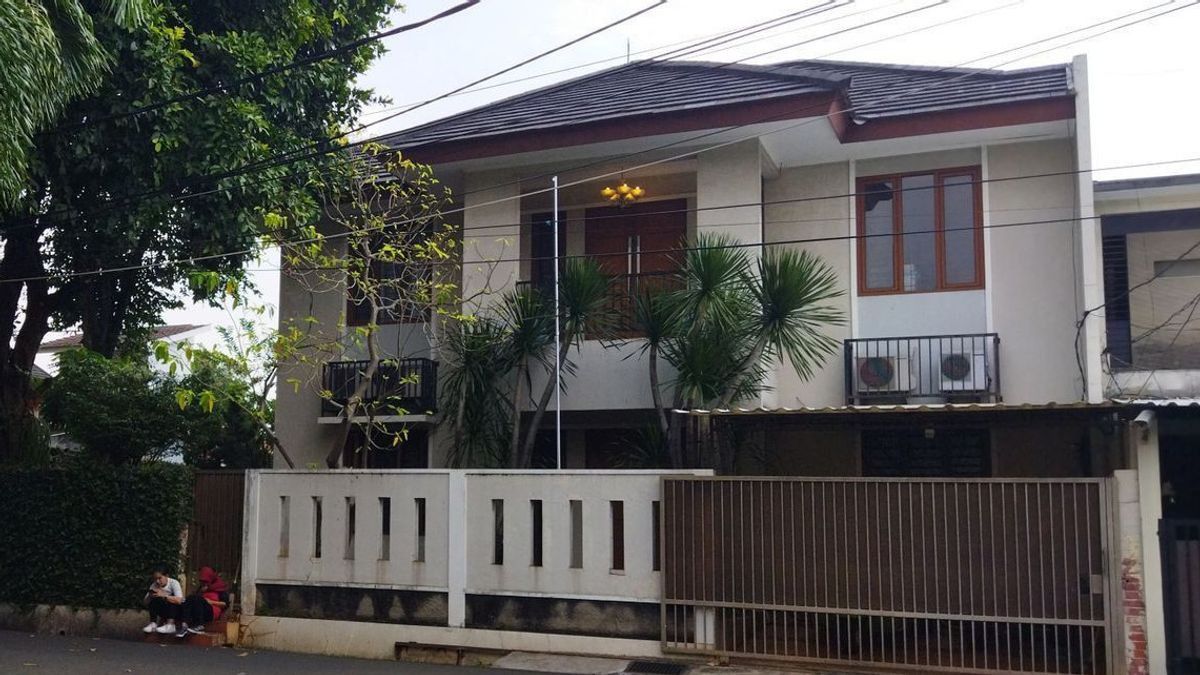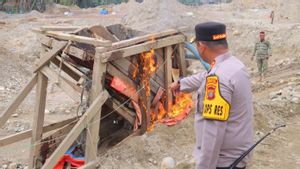YOGYAKARTA - The National Police's official residence was widely discussed after the murder case against Brigadier J. The crime scene of the murder was at the Ferdy Sambo official residence alias the perpetrator. In the murder there were 4 other people who were named suspects and were at the scene. So who occupies the position of the Police official residence?
The official residence of the National Police is no stranger to the world of police. The official residence itself is a term provided by the state for the State Civil Apparatus. In Law Number 1 of 2011 concerning Housing and Settlement Areas, it reads:
"State houses are houses owned by the state and function as residences or residences and facilities for family development as well as support the implementation of duties and/or civil servants".
Meanwhile, the official residence of the National Police is a residential area that was established and provided for members of the Indonesian National Police (Polri). Police officers on duty at official residences must comply with and carry out the applicable laws.
The official residence of the National Police can be called a residential facility provided by the state for members of the police. However, the recipients of the official residence may not treat the house as a private house or act as they please. There are rules that must be followed and cannot be violated by the owner of the official residence.
Police Regulation Number 13 of 2018 concerning Department/Asrama/Mes Polri Housing, Article 1 paragraph 5 states:
"The housing of the National Police Service is a state house in the form of buildings owned and/or controlled by the National Police and functions as a place to live or residence and facilities for fostering families and supporting the implementation of civil servants' duties to the Police."
The purpose of the National Police Service House
The official residence of the National Police cannot be occupied by just anyone. The rules for placing or deploying official houses are regulated in the Police Regulation.
The official houses of the National Police are classified as two, namely Group I and Group II. The official residence of the National Police Group I, which is a certain office. This official house can be inside the chivalrous or may be outside the chivalrous level. The designation of this official residence is determined by the Chief of Police's Decree.
Meanwhile, the official residence of the National Police is Group II, namely the Mes and the dormitory. This official residence is intended for Civil Servants at the National Police who are not entitled to the official residence of Class I Pembangunan of this official house in stages according to the capacity of the Police budget.
To occupy the official residence of the National Police, you must have a permit as contained in the National Police Regulation No. 13 of 2018 concerning Official/Asrama/Mes Polri Housing, Article 7 number, which reads:
"Every civil servant at the National Police who occupies the National Police Service House must have a Placement Permit (SIP)."
Article 8:
(1) Placement of Police Service House Class I after the police official concerned officially occupies the position.
(2) Placement of House of Police Service Group II after Civil Servants at the Police have a Placement Permit (SIP) on behalf of the person concerned.
The National Police official residence also has a validity period regulated in Police Regulation No. 13 of 2018 concerning Official/Asrama/Mes Polri Housing.
Article 10 reads:
(1) The Placement Permit (SIP) is valid for 1 (one) year and can be extended.
(2) The Placement Permit (SIP) ends when:
That was the explanation regarding the official residence of the Police and who has the right to occupy the official residence of the Police. The complete policies and rules are contained in the Police Regulation.
Keep up with the latest domestic and other overseas news on VOI. We bring you national and international updates
The English, Chinese, Japanese, Arabic, and French versions are automatically generated by the AI. So there may still be inaccuracies in translating, please always see Indonesian as our main language. (system supported by DigitalSiber.id)













